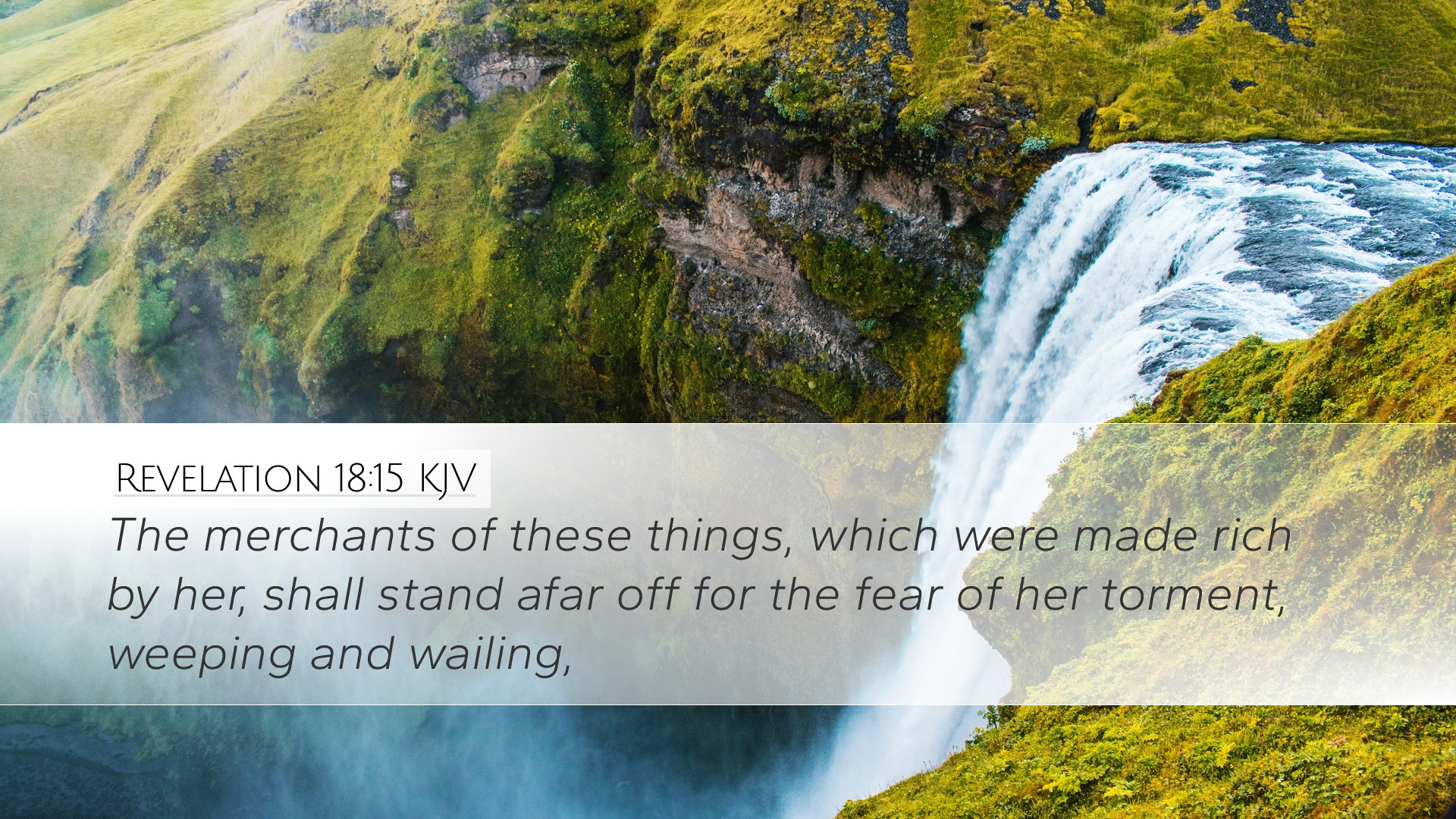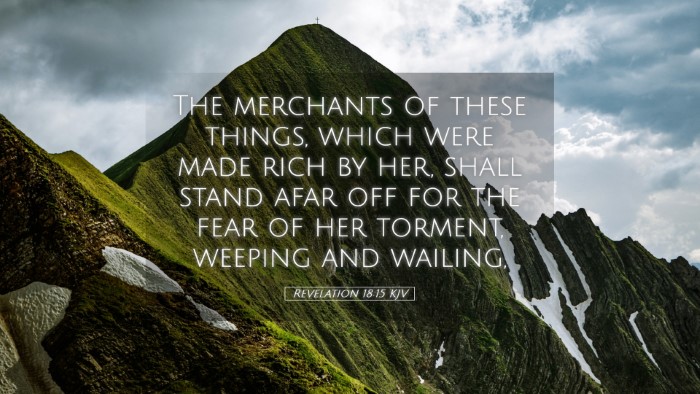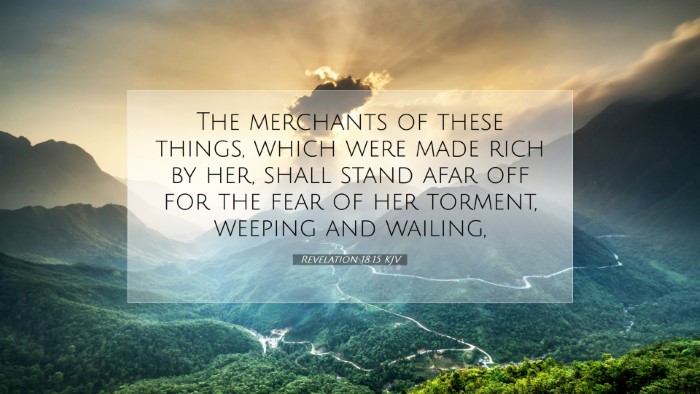Commentary on Revelation 18:15
Introduction
Revelation 18:15 states, “The merchants of these things, which were made rich by her, shall stand afar off for the fear of her torment, weeping and wailing.” This verse captures a profound moment of despair as it reveals the reaction of merchants who profited from the great city, Babylon, symbolizing economic corruption and spiritual depravity. This commentary synthesizes insights from several well-known public domain commentators, providing depth useful for pastors, students, theologians, and scholars.
Contextual Overview
In the broader context of Revelation 18, we witness the fall of Babylon, representing a culmination of divine judgment against the forces that oppose God. The merchants symbolize the worldly and materialistic values that have led them to rely on an empire built on sin, corruption, and idolatry.
Spiritual and Theological Implications
The Judgment of Materialism
Albert Barnes emphasizes how this passage illustrates the ultimate downfall of worldly pursuits. The merchants, who once thrived amid Babylon’s decadence, now face the reality of their impending doom. This serves as a stark warning about the emptiness and temporary nature of wealth that is not aligned with God’s purposes.
Distance and Separation
Adam Clarke notes that the act of standing afar off illustrates the profound separation that results from judgment. Their fear of torment highlights the realization that their riches cannot save them from divine retribution. This separation signifies both a physical and spiritual distance from God’s grace and ultimately points to the isolation experienced by those who cling to materialism over faith.
Historical Insights
Matthew Henry provides a historical perspective on the nature of commerce in the Greco-Roman world, where merchants often gained wealth through the exploitation of trade routes established by empires like Babylon. He suggests that this moment of lamentation reflects not just personal loss but a profound recognition of spiritual bankruptcy. Their grief signifies a loss of everything they had relied upon, underscoring a broader commentary on the fleeting nature of material successes in light of divine justice.
The Emotional Response of the Merchants
Both grief and fear are prevalent themes in this verse, reflecting the inner turmoil of those who have invested in a system now collapsing. The merchants are depicted as weeping and wailing, emotions that indicate regret, lost opportunities, and the realization of foolish choices. Clarke elucidates that their emotional response is not one of genuine repentance but rather a fear of retribution.
Parallels in Scripture
This reaction can be paralleled with other scriptural instances where individuals faced divine judgment and the accompanying fear. For instance, the rich man in Luke 16:19-31 experienced torment and longing after his earthly life ended, showcasing the eternal consequences of one’s earthly decisions.
Application for Today
In today’s church and society, this passage calls pastors and believers to reflect on where their true investments lie. The merchants’ lamentation serves as a cautionary tale against a lifestyle focused solely on material gain and the neglect of one's spiritual condition. It urges a re-evaluation of priorities in the light of eternity, as ultimate fulfillment and security can only be found in Christ.
- Encouragement for Faithfulness: This verse underscores the importance of investing in the kingdom of God rather than earthly treasures.
- The Call to Repentance: The merchants’ fear reflects a need for genuine repentance and a turning back to God, which can serve as a restorative invitation for those caught in worldly systems.
- Hope amidst Judgment: Even amidst the anguish of judgment, there is hope for redemption available through Christ, encouraging faithful living amidst a consumer-driven society.
Conclusion
The multifaceted insights drawn from Revelation 18:15 reveal the profound ramifications of living in opposition to God’s will through a life centered on wealth and materialism. By considering the perspectives of Henry, Barnes, and Clarke, we can understand the importance of aligning our lives with spiritual values rather than the fleeting pursuits of earthly riches. As we reflect on the fate of the merchants, may we be led to a deeper, more meaningful investment in the eternal kingdom of God.


